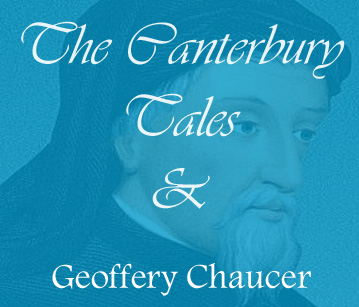Middle English Period
The Middle English was spoken in England from about 100 A.D. to about 1500 A.D. It was much easier than the old English.

Poetry
The greatest poet of this period was Geoffrey Chaucer, often called the father of English poetry. He is one of the most skillful and attractive English writers of the entire history of English literature. His great work was The Canterbury Tales, which is in about 17000 lines. It is a collection of stories told by pilgrims on a pilgrimage to Canterbury Cathedral. There are more than twenty stories, but the descriptions of the characters are much more important than their stories. They represent the English life and the various professions like the knight, the merchant, the lawyer, the cook, the priest, and the plowman. Chaucer’s characters are true-to-life and they represent their own class and profession. One of the most enjoyable characters is wife of Bath. Chaucer also wrote Troylus and Cryseyde and The Legend of Good Women.
Another poet of Chaucer’s time was William Langland, who wrote The Vision of Piers the Plowman. It looks a lot older than Chaucer’s rhymed verse, though they are contemporary writers. The characters in this poem are not as real as Chaucer’s. Langland sadly says in his poem how most people prefer the false treasures of this world than the true treasures of heaven. It describes the sorrows of the poor in alliterative lines. This alliteration can be seen in another poem, as well as in Sir Gawain and the Green Knight. It is a story related to the legend of King Arthur and his Knights of the Round Table.
Prose
Mostly the Middle English prose was religious in nature. The Ancress is a prose work mainly written for religious women. It tells them a lot about the rules of life. Another work The Form of Perfect Living was also written by Richard Rolle probably in the thirteen century. He is very noted for his prose style and his work is important in the history of prose.
John Wycliffe, who was a priest, made the Bible available for the common man. He translated the Bible from Latin to English. His attack to the religious ideas could no longer been tolerated so he had to leave Oxford. He believed that everyone ought to be allowed to read the Bible. But the problem was that it was written in Latin and uneducated people could not read it. That is why he arranged the production of the whole Bible in English. He himself translated some part of it into English. Another important prose work is Mort D’ Arthur by Sir Thomas Malory. It is about the adventure of King Arthur and his Knights. It has two themes: one is the search for the Holy Grail, and the other is Arthur’s battles against his enemies.
Play
The first English plays, called Miracle or Mystery plays were religious and were performed in or near the churches. The subject matter of such plays was biblical, such as, the disobedience of Adam and Eve, Noah and the great flood, Abraham and Isaac, events in the life of the Christ and so on. They were acted by people of the town on the wheeled stages so they could be moved to everywhere and the play could be shown in different parts of the town. Though the miracles were serious and religious in intention, English comedy grew out of them.
Miracle plays were followed by Morality plays. There is no vast difference between these plays. The hero of the Morality play always represents mankind and the other characters are not people. They represent the abstract qualities like Truth, Beauty, Evil, and Greed and so on. One of the best examples of such play is Everyman. It is the story of the end of Everyman’s life. When Death calls Everyman, he has to go to face Death. At this time all his friends leave him except Good Deeds. These plays taught Christian morality to the uneducated.
The interlude is the kind of short, funny and humorous play, which was common in the late fifteenth and early sixteenth centuries were acted away from the church. Such plays were often acted between the acts of long Moralities or between the courses of a feast. Professional actors in colleges or rich men’s houses or gardens showed these little dramas. The best example of it is the Four P’s which was written by John Heywood.
